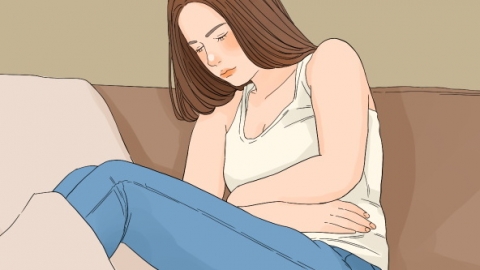What are the side effects of contraceptive pills?
Generally, common contraceptive pills include Levonorgestrel tablets, Mifepristone tablets, Ethinylestradiol and Cyproterone acetate tablets, etc. Possible side effects of contraceptive pills may include menstrual disorders, breast tenderness, increased vaginal discharge, nausea and vomiting, headache, etc. A detailed analysis is as follows:

1. Menstrual Disorders
Contraceptive pills may affect the endocrine function of the ovaries, thereby influencing the menstrual cycle. Possible symptoms include spotting, early menstruation, changes in menstrual flow, and amenorrhea. These symptoms are usually related to the interference of the hormonal components in the contraceptive pills with the normal menstrual cycle.
2. Breast Tenderness
Breast tissue is sensitive to hormonal changes. The estrogen and progestin in contraceptive pills may cause breast tissue proliferation, leading to breast tenderness or pain. This side effect is often more noticeable during the first few months of taking the pills. As the body gradually adapts to the medication, symptoms may improve.
3. Increased Vaginal Discharge
Contraceptive pills contain high levels of estrogen, which may affect the cervical mucosal secretory cells, causing excessive secretion and resulting in increased vaginal discharge. This symptom generally does not pose a serious threat to health. However, if the discharge shows abnormal color, odor, or is accompanied by itching, prompt medical consultation and examination are recommended.
4. Nausea and Vomiting
The hormones in contraceptive pills may irritate the gastrointestinal mucosa, affecting normal gastrointestinal motility and secretion of digestive fluids. When the gastrointestinal tract is irritated, a series of nerve reflexes are triggered, causing contraction of the stomach muscles and resulting in symptoms of nausea and vomiting. These discomforts may be more pronounced when taking contraceptive pills on an empty stomach.
5. Headache
Contraceptive pills may affect the dilation and constriction functions of cerebral blood vessels, leading to abnormal expansion or contraction. These vascular changes may stimulate pain-sensitive structures within the skull, causing headaches. The severity and frequency of headaches vary among individuals. Some women may experience periodic headaches during the use of contraceptive pills, which may worsen with prolonged use.
Contraceptive pills may cause various side effects during use. To reduce the risk of these side effects, it is recommended to carefully read the instructions and consult a doctor before use.







